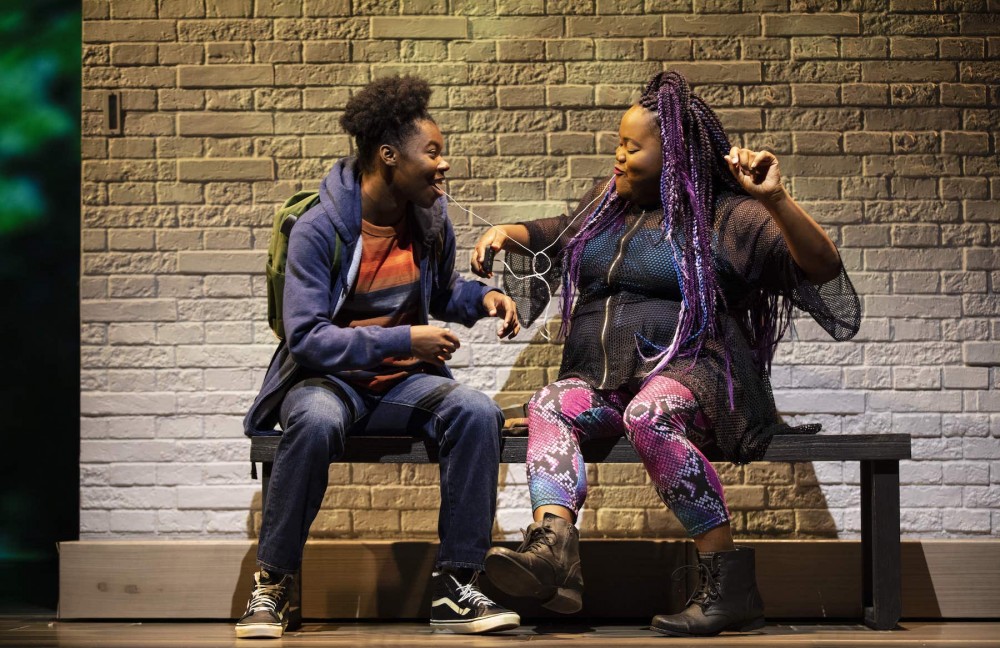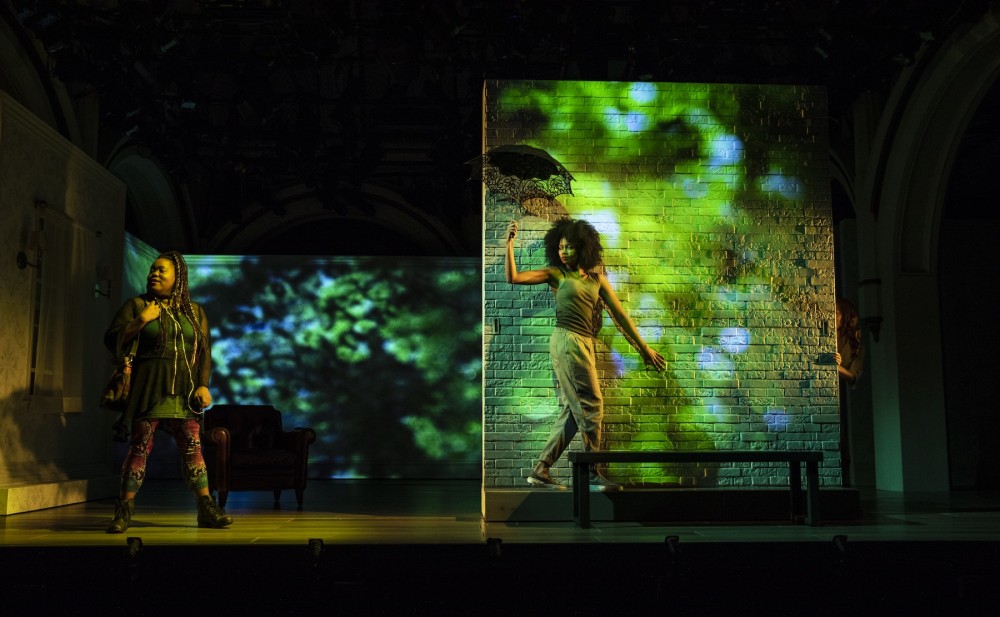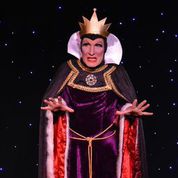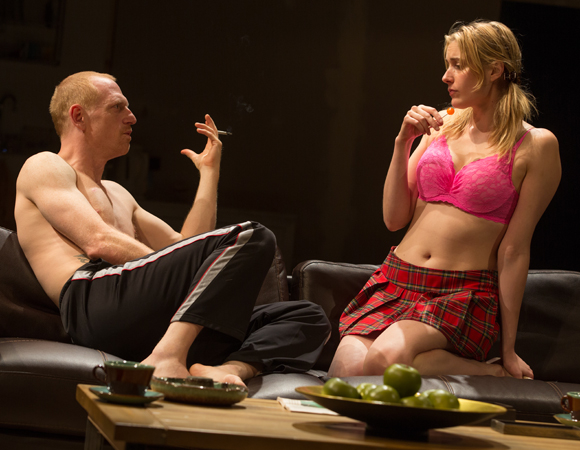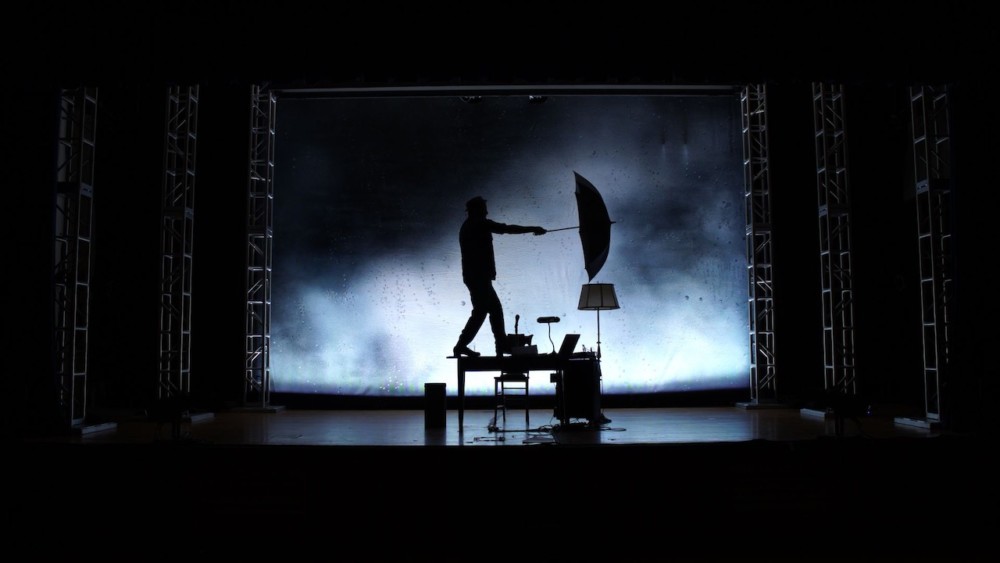by Carol Rocamora
Lauren’s having a tough time. She’s young, black and gay, and there’s no one on her side. Her father left the family a while ago, her younger brother is a pain, and her mother categorically rejects her sexual identity. How can Lauren be herself if her mom runs the family dinner like a scene from Masterpiece Theatre?
Sounds like a stock situation in a sitcom? Not a chance – not in Eve’s Song, the passionate new play of identity now running at the Public Theatre. Imagine the scope of Tony Kushner’s eight-hour epic Angels in America crammed into 100 minutes, and you’ve got the ambition of Patricia Ione Lloyd’s fervent new work about growing up black and lesbian in white America, with all of its related themes – not to mention its sprawling social and political context.
This wildly ambitious play, stripped down to its essential coming-of-age story line, features Lauren, a feisty teenager, and her first sexual liaison with another young woman named Tiffany. It’s an encounter that changes her life, as well as that of her family. Tiffany is a feminist, a political activist, and a spiritualist. She’s renamed herself Upendo (an allegedly ancient name) as the first step toward defining herself. Second, she’s reached back 200,000 years to invoke the spirit of “Eve”, ancestor of all black women today. Moreover, she’s adopted Eve’s “song” for her identity. She urges Lauren to find that “song” for herself, and therein lies Lauren’s quest.
Playwright Patricia Ione Lloyd likes a big challenge. Using the family dinner table as a conventional springboard, she uses all kinds of dramatic devices to tell Lauren’s story. Lights will suddenly fade on the family scene and spotlight one member who delivers an internal monologue on his/her perspective. Then lights go up again, and the conventional scene continues. As the locales change – from the dining room, to the park where Lauren and Tiffany meet, to street protest scenes and so on – the walls of the set are moved by three so-called “Spirit Women.” Apparently, these specters come from the characters’ deep African past, brought forward to haunt the present. These spirits recite their own soliloquies, in which they embody contemporary American women who have been killed by violence.
To provide political context, Lauren’s brother Mark carries a laptop with him to the dinner table, from which he watches video footage of police brutality against African- Americans. These images are projected on the dining room wall (designed by Riccardo Hernandez), where a picture of their African ancestors hangs precariously. As Lauren’s mother desperately tries to hold the family together and conform to a “normal American life,” the walls in her dining room keep cracking open with a deafening sound.
Clearly, there’s a lot going on in Eve’s Song, and this brave, determined playwright goes where angels fear to tread. Her style segues from realism to surrealism to absurdism to symbolism to fantasy and back again. As for the play’s topics (black female identity, feminism, lesbianism, racism, police violence), themes, and sub-plots, there’s enough rich material here for numerous plays.
As Upendo, Ashley D. Kelley is a fierce mouthpiece for black feminism. She spews forth a narrative that brother Mark (played by Karl Green) mocks with glee, providing yet another note to this multi-tonal play – namely, satire of political correctness. As Lauren, Kadijah Raquel gives a heartfelt performance, while Lauren’s mother Deborah (played by Gameela Wright at the performance I attended) tries in vain to ward off the conflicting forces.
Jo Bonney, who has directed Suzan-Lori Parks’s work, brings great skill in integrating all these elements into a coherent artistic whole. In staging Lloyd’s complex work, the Public Theatre nobly fulfills its mission to honor the multiplicity of voices that comprise the chorus of America.
Photos: Joan Marcus
Eve’s Song, by Patricia Ione Lloyd, directed by Jo Bonney, at the Public Theater, through December 9


